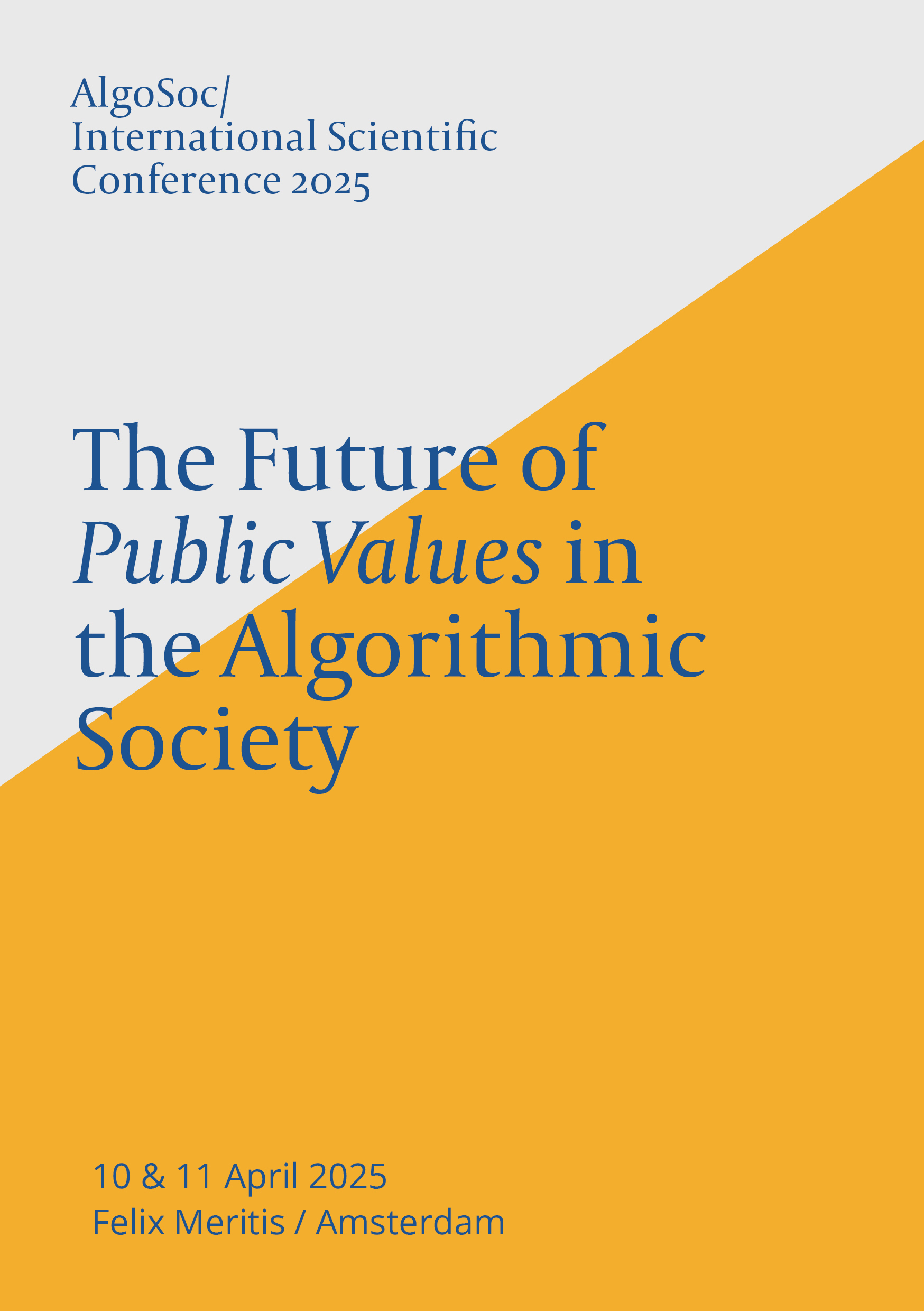
10 Apr 2025
The Future of Public Values in the Algorithmic Society (10-11 April)
Join AlgoSoc’s 2-day international conference, The Future of Public Values in the Algorithmic Society, on April 10-11, 2025! Immerse yourself in 50 paper presentations, 10 panel discussions, 30 poster sessions and 3 thought-provoking keynotes at one of Amsterdam's most iconic cultural hubs, and get inspired by a wide range of scholars from diverse disciplines and experts from beyond academia, representing many regions of the world!
The conference
As algorithms and artificial intelligence play an ever larger role in our societies, they raise urgent questions about the future we want to create. Technological advances offer tremendous opportunities, but also challenge how we safeguard public values such as fairness, privacy, and transparancy. These are not just technical issues — they are societal choices that demand critical reflection and public debate.
Recent developments show how technology and political power are increasingly intertwined. What happens when powerful actors control the technologies that shape public discourse and decision-making? And what are the consequences when public values are at stake in struggles between private interests, governments, and citizens?
The AlgoSoc conference shifts the focus from technology and the promise of innovation to the political, economic, and societal contexts in which technologies evolve. From Europe’s dependence on foreign tech giants to global debates on digital sovereignty, join us in reflecting on the future of our digital infrastructures and the values we wish to uphold.
We hope these two days inspire lively debate and new collaborations — working together towards a future where technology strengthens democracy, safeguards human rights, and serves the public good.
Registration and Venue
There are only a handful of tickets left, so secure your spot soon! To register, please visit the conference registration website: Scientific AlgoSoc Conference 2025.
We are committed to creating an inclusive environment for all attendees. If you encounter any barriers or require assistance during the conference (due to disability or health issues), please do not hesitate to contact us at conference2025@algosoc.org.
Organising Committee
Prof. Natali Helberger | University of Amsterdam
Prof. Claes de Vreese | University of Amsterdam
Prof. José van Dijck | Utrecht University
Dr. Seda Gürses | Delft University of Technology
Prof. Corien Prins | Tilburg University
Prof. Floris Bex | Utrecht University
Prof. Daniel Oberski | Utrecht University
Prof. Julia van Weert | University of Amsterdam
Dr. Charis Papaevangelou | University of Amsterdam
Dr. Yefim Shulman | Erasmus University Rotterdam
Marilù Miotto | Erasmus University Rotterdam
Tynke Schepers | Tilburg University
Joris de Vries | University of Amsterdam
Nathalie van Doorn | University of Amsterdam
